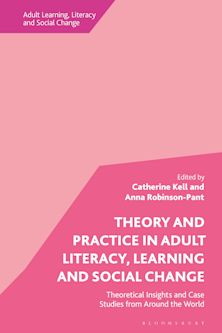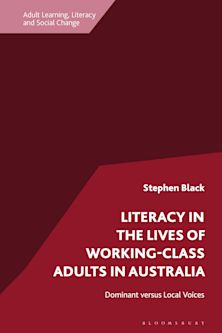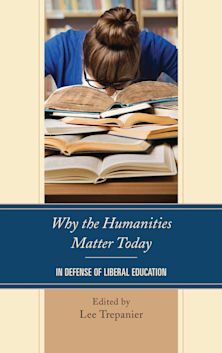Navigating the Complexities of Health Professions Education for Millennial and Generation Z Learners
Navigating the Complexities of Health Professions Education for Millennial and Generation Z Learners
This product is usually dispatched within 2-4 weeks
- Delivery and returns info
-
Flat rate of $10.00 for shipping anywhere in Australia
Description
The evolving landscape of healthcare tasks health professions educators with preparing the next generation of providers to be adaptable, responsive, and self-directed to ensure that they are prepared for entry into practice. The complexity of developing, implementing, and assessing health professions education is further compounded when educators consider the expectations of their learners and strive to integrate their needs and expectations into the learning environment. As a result of the varying academic requirements of health professions disciplines, educators may be faced with teaching students spanning multiple generations, to primarily include Millennial and Generation Z learners. Educators must be prepared to anticipate, identify, and respond to differing generational expectations to ensure that health professions students are equipped with the knowledge, skills, and abilities needed for practice.
This book examines generational differences between Millennial and Generation Z learners to inform health professions educators of those generational characteristics and expectations. The book also illustrates how higher education has evolved and changed as a result of the COVID-19 pandemic and the impending demographic cliff, how educators can adapt the varying learning environments (classroom, clinical, and experiential) present within health professions education, and provide best practices to consider when developing, implementing and revising learning opportunities.
Table of Contents
Preface
Chapter 1: Overview of Generational Theory and the Millennial Generation
Chapter 2: Generation Z Enters Higher Education and How They Compare to Millennials
Chapter 3: Recent Trends Impacting Higher Education Across Generations: Is Demography Destiny in Higher Education?
Chapter 4: Factors that Impact Health Professions Education
Chapter 5: Considerations for Teaching Millennials and Gen Zs in the Classroom
Chapter 6: Assessing Competency-Based Education and Navigating Clinical/Lab Skills with Millennial and Generation Z Learners
Chapter 7: Establishing Connection within Co-Curricular Experiences and the Role of Student Affairs within Higher Education
Chapter 8: Creating a Team within Interprofessional Education with Multigenerational Student Populations
Chapter 9: Cultivating Professionalism and Professional Identity Formation Through Experiential Learning
Chapter 10: Generational Differences in the Health Professions Workforce
Chapter 11: Best Practices for Navigating the Generational Divides
Conclusion
References
About the Authors
Product details
| Published | 18 Jan 2024 |
|---|---|
| Format | Hardback |
| Edition | 1st |
| Extent | 232 |
| ISBN | 9781666917895 |
| Imprint | Lexington Books |
| Illustrations | 1 BW Illustration, 1 Table |
| Dimensions | 236 x 158 mm |
| Series | Generational Differences in Higher Education and the Workplace: Leading and Teaching Millennials and Generation Z |
| Publisher | Bloomsbury Publishing |
Reviews

ONLINE RESOURCES
Bloomsbury Collections
This book is available on Bloomsbury Collections where your library has access.


































